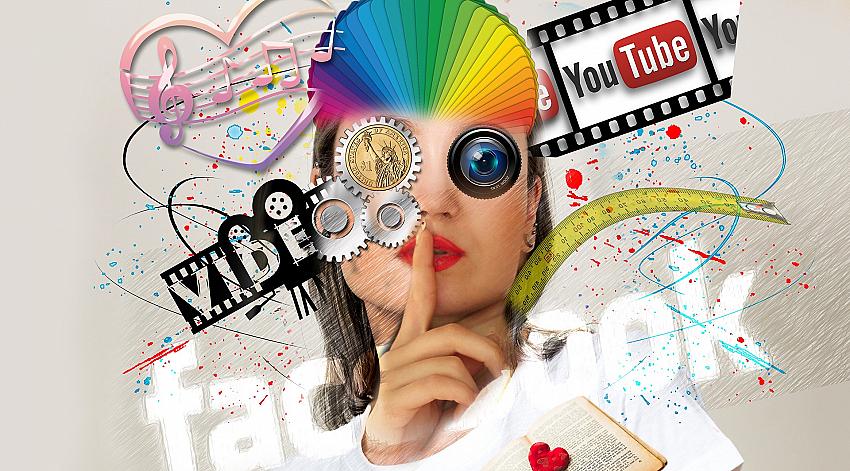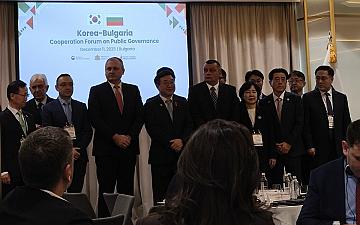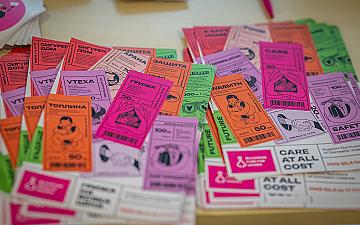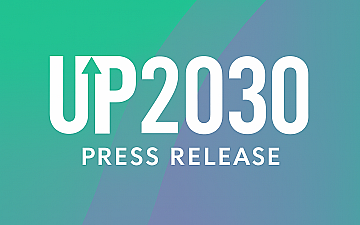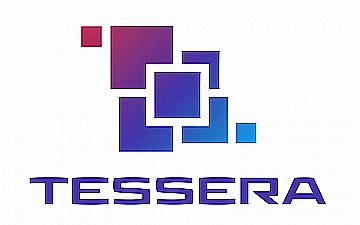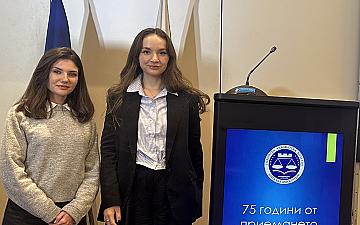It has a negative impact on all aspects of our lives - politics, social relations, healthcare, education, etc.[i] We often witness our relatives or friends sharing posts on various social media platforms that contain false or manipulated information. Sometimes we ourselves may have unknowingly spread an untrustworthy news report or post. These phenomena are certainly harmful and should be avoided. But an interesting question would be whether celebrities and other recognizable people pose greater dangers when spreading voluntarily or involuntarily unreliable information?
On one hand, the main danger when a relative or acquaintance of ours shares something is that we have an emotional bond with that individual and based on that we are inclined to trust them.[i]At the same time, it could be argued that followers and fans of a particular performer, actor, politician also have an established para-social relationship with that person and place a high level of trust in them.[ii]We often perceive celebrities as role models. They are surrounded by PR teams whose main goal is to make that public figure likeable and able to influence the community, its preferences and opinions. Celebrities can influence what products we buy, which brands we trust, which places we would like to visit, in that line of thought could they also influence which media we trust, which politicians we support, which side we would support on a particular public issue?
A study by researchers at the Reuters Institute found that 20% of misleading posts about the coronavirus were created by profiles of influencers.[iii] At the same time, these posts generated 69% of overall user interaction with posts with such content.[iv] This is not surprising. Celebrity profiles have far more followers and generate far more response. That's why a number of authors have noted the key role they play in spreading misleading information.[v]
Some key examples of the influence of famous and recognizable figures in the spread of misleading information are:
- Nicki Minaj and false information about the harms of vaccines[vi]: Rapper Nicki Minaj tweeted about the harmful effects of the COVID-19 vaccines by sharing an anecdotal story of how a friend of her brother experienced negative side effects related to his potency. Following this statement, authorities in Trinidad and Tobago, the country where the incident allegedly occurred, issued a statement that no case of such a harmful side effect following vaccination has been identified.
- Amitabh Bachchan and the flies allegedly spreading coronavirus[vii]: Bollywood actor Amitabh Bachchan shared a number of posts with misinformation, including one that claimed house flies can spread the coronavirus. Following this statement of his, Google, reported a huge spike in searches for "house fly" in English and in Hindi.
- MIA and the unproven danger of 5G[viii]: Singer MIA, among other recognizable figures, shared information that claimed 5G is harming people's health. After a sustained misinformation campaign which spread such information online, in the UK, for example, residents set fire to a 5G installation[ix], while in Bulgaria, again misled by public fear and misinformation, local municipal councils in Mezdra and Balchik banned 5G networks on their territories.[x]
These cases are particularly worrying because they show the detrimental effects that celebrities and the misinformation they share can cause. Of course, they are not the only factor shaping public attitudes, but they can play a significant role. They can have a particularly strong influence on young people who look at them as role models and are not as critical because of their age and naivety. All of this exposes our society to a number of dangers if we do not begin to be more critical of celebrities and other recognizable figures and the duties they have as role models.
Until recently, it was a problem that the mechanisms against misleading information of many social networks did not monitor the posts of celebrities and politicians.[xi]This is what the so-called Facebook files revealed - they showed that the social network was not taking measures against misinformation from politicians and recognizable figures.[xii]Still, social media platforms have begun to take action when celebrities spread misleading information, for example this was the case when Twitter went as far as to ban Donald Trump's account.[xiii]
Secondly, it's important to note that celebrities are also starting to self-regulate their actions. Often, there are members of the public who speak up when these celebrities are not being responsible and share false information. Now it seems in the interest of the celebrities themselves to look over what they share and to listen to the advice of their professional PR teams on what information to present and how. If they make mistakes, they could even lose sponsorships and partnerships, fans, and even their platform.
Lastly, users themselves need to be more careful who they trust. It appears that people are increasingly relying on trustworthy individuals as the source of information, these are accounts who have proven themselves to be reliable and responsible towards their commitment to share truthful information.[xiv] Ultimately, each of us is responsible for who we will trust, and we should not base that reliance entirely on the fame of individuals, because their opinions and positions are not always based on facts and truthfulness.
[i] Menczer F, Hills T, ‘Information Overload Helps Fake News Spread, and Social Media Knows It’ (Scientific American, 2020/12/01), available at: https://www.scientificamerican.com/article/information-overload-helps-fake-news-spread-and-social-media-knows-it/, last accessed: 11/09/2022.
[ii] Chung S, Cho H, ‘Fostering Parasocial Relationships with Celebrities on Social Media: Implications for Celebrity Endorsement’, (2017), Psychology & Marketing, 34, 4, 481-495.
[iii] Brennen J, Simon F, Howard P, Nielsen R, ‘Types, sources, and claims of COVID-19 misinformation’ (Reuters Institute, 2020/04/07), available at: https://reutersinstitute.politics.ox.ac.uk/types-sources-and-claims-covid-19-misinformation, last accessed: 11/09/2022.
[iv] Ibid.
[v] Waterson J, Belam M, ‘Influencers among 'key distributors' of coronavirus misinformation’ (The Guardian, 2020/04/08), available at: https://www.theguardian.com/media/2020/apr/08/influencers-being-key-distributors-of-coronavirus-fake-news, last accessed: 11/09/2022.
[vi] Reuters, ‘Nicki Minaj's Covid-19 vaccine 'swollen testicles' claim is false, says Trinidad health minister’ (CNN, 2021/09/17), available at : https://edition.cnn.com/2021/09/16/americas/nicki-minaj-vaccine-story-false-scli-intl/index.htmllast accessed: 11/09/2022.
[vii] Ahmadi A, ‘Online influencers have become powerful vectors in promoting false information and conspiracy theories’ (First Draft, 2020/12/08), available at: https://firstdraftnews.org/articles/influencers-vectors-misinformation/, last accessed: 11/09/2022.
[viii] Waterson, Belam n(6).
[ix] Warren T, ‘British 5G towers are being set on fire because of coronavirus conspiracy theories’ (The Verge, 2020/04/04), available at: https://www.theverge.com/2020/4/4/21207927/5g-towers-burning-uk-coronavirus-conspiracy-theory-link, last accessed: 11/09/2022.
[x] Hrsitova N, ‘Mezdra stana vtorata bulgarska obshtina, koyato zabrani 5G mrezhata’[‘Mezdra became the second Bulgarian municipality which banned 5G networks’] (dir.bg, 2021/01/01), available at: https://it.dir.bg/tehnologii/mezdra-stana-vtorata-balgarska-obshtina-koyato-zabrani-5g-mrezhata, last accessed: 11/09/2022.
[xi] Ahmadi n (8).
[xii] Horwitz J, ‘the facebook files’ (The Wallstreet Journal), available at: https://www.wsj.com/articles/the-facebook-files-11631713039, last accessed: 11/09/2022.
[xiii] Fung B, ‘Twitter bans President Trump permanently’ (CNN Business, 2021/01/09), available at: https://edition.cnn.com/2021/01/08/tech/trump-twitter-ban/index.html, last accessed: 11/09/2022.
[xiv] Dubois E, Minaeian S, Paquet-Labelle A, Beaudry S, ‘Who to Trust on Social Media: How Opinion Leaders and Seekers Avoid Disinformation and Echo Chambers’, Social Media + Society, April 2020.
